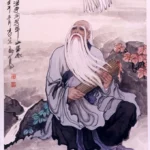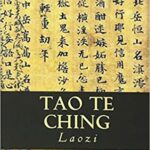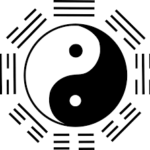Articles by Lao Tzu
We found 8 results.
Tao Te Ching on Peace and Nonviolence (5)
Lao Tzu – TRANSCEND Media Service,
19 Jun 2023
Quoted from the Tao Te Ching, a Chinese classic text written around 400 BC and traditionally credited to the sage Laozi.
→ read full articleTao Te Ching on Peace and Nonviolence (4)
Lao Tzu – TRANSCEND Media Service,
5 Jun 2023
Quoted from the Tao Te Ching, a Chinese classic text written around 400 BC and traditionally credited to the sage Laozi.
→ read full articleTao Te Ching on Peace and Nonviolence (3)
Lao Tzu – TRANSCEND Media Service,
29 May 2023
Quoted from the Tao Te Ching, a Chinese classic text written around 400 BC and traditionally credited to the sage Laozi.
→ read full articleTao Te Ching on Peace and Nonviolence (2)
Lao Tzu – TRANSCEND Media Service,
15 May 2023
Quoted from the Tao Te Ching, a Chinese classic text written around 400 BC and traditionally credited to the sage Laozi.
→ read full articleTao Te Ching on Peace and Nonviolence (1)
Lao Tzu – TRANSCEND Media Service,
8 May 2023
Quoted from the Tao Te Ching, a Chinese classic text written around 400 BC and traditionally credited to the sage Laozi.
→ read full articleTao: The Way
Lao Tzu - TRANSCEND Media Service,
29 Nov 2021
Can’t miss each other…
→ read full article“The best warriors do not use violence. The best tacticians try to avoid confrontation. The best businessmen serve the communal good. The best leaders become servants of their people…”
Lao Tzu | Tao Te Ching – TRANSCEND Media Service,
25 Jan 2021
The Tao Te Ching is a Chinese classic text traditionally credited to the 6th-century BC sage Laozi also known as Lao Tzu. However, the text’s authorship and dates of composition and compilation are debated.
→ read full articleTao Te Ching
Lao Tzu – TRANSCEND Media Service,
30 Jul 2018
The Tao Te Ching is a Chinese classic text traditionally credited to the 6th-century BC sage Laozi. The text’s authorship, date of composition and date of compilation are debated. The oldest excavated portion dates back to the late 4th century BC, but modern scholarship dates other parts of the text as having been written—or at least compiled—later than the earliest portions of the Zhuangzi.
→ read full article




